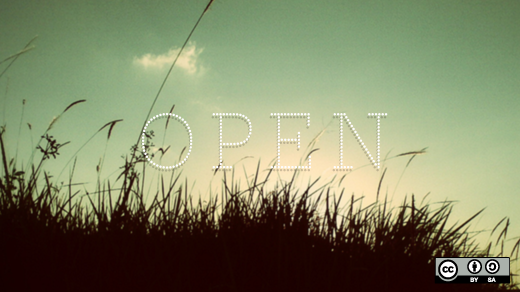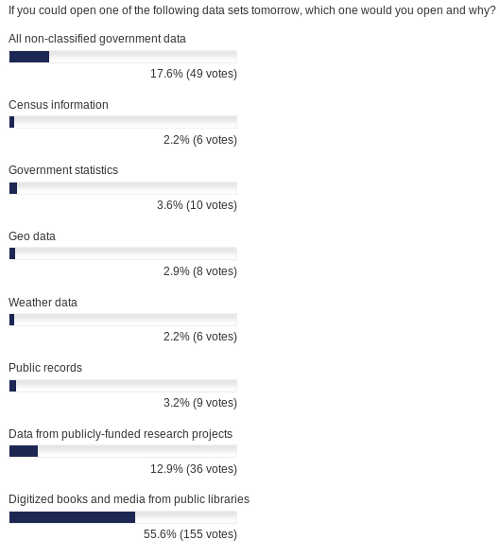Last month, we posted a survey asking, "If you could open one of the following data sets tomorrow, which one would you open and why?" We got a great response–279 people voted and there were several comments.
One commenter remarked that we should have made it multiple choice, avoiding an all-or-nothing outcome. And another pointed out that 'non-classified government data' could include private personal information--like tax records, for example. So, as always, how we ask these questions is incredibly important.
The aim of the the original question was to get a sense of our priorities for openness in government, to delineate when information ceases to be in the public interest, and to gauge how far some of us are willing to go.
Clearly, the wisdom of the opensource.com crowd is that anything available in a public library should be available digitally. This validation of the importance of a public commons for knowledge and entertainment wasn't especially surprising. Sharing knowledge has been a cornerstone of western civilization for centuries, and sharing it with the general public on a large scale has been pretty popular with philanthropists and municipalities in the west since the turn of the century.
But that digital liberalism stops at the courthouse door.
Even though many criminal, property, dmv, and tax records (at least in the U.S.) are considered public information and are digitally available, for a fee, through private, for-profit search agencies, they aren't freely available to everyone. In fact, this information is often seen as a commodity. In many parts of the U.S., state governments sell some of this public--but hard-to-gather--information to marketers. Think about how many solicitations from attorneys you got the last time you got a speeding ticket.
So, even in a forum that leans heavily towards openness, less than 20% of respondents voted to make all "non-classified government data" publicly and freely available--perhaps because they felt there was much that needed to be kept private between government and citizen.
Interesting results. And the large number of votes (even with a poorly worded question) expose a hunger for the more egalitarian idea of sharing knowledge and wisdom widely. There was less appetite for doing the same with information collected by governments when privacy might be at stake.








Comments are closed.